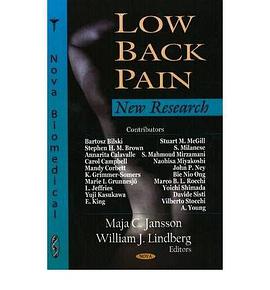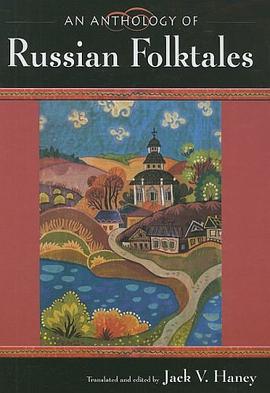
The Politics of Modern Japan pdf epub mobi txt 电子书 下载 2026
- 比较政治
- 日本政治
- 日本
- 政治学
- 参考书
- 日本政治
- 现代日本
- 政治学
- 日本历史
- 亚洲政治
- 政治制度
- 公共政策
- 社会科学
- 日本研究
- 政治文化
具体描述
Owing to the changing nature of Japan and its role within the world, more needs to be known of the dynamics of Japanese politics. This timely set brings together key articles on the most crucial issues facing Japanese politics today, and the relationship between Japanese politics and the main institutions including big business, the bureaucracy and the media. This is an area that has been studied by leading academics for a number of decades, but whose work has yet to be given sufficient notice or credit. With more and more students enrolling at universities to study Japan, there is a demand for books which bring comprehensive and key articles under one umbrella. To date there have been few books which have dealt with Japanese politics. Most have been on issues which are covered in articles contained in this collection.
作者简介
Dr Christopher P. Hood is the Director of the Cardiff Japanese Studies Centre (Cardiff University) and an Associate Fellow at the Royal Institute of International Affairs (‘Chatham House’). His publications include Japanese Education Reform: Nakasone’s Legacy (Routledge, 2001), Doing Business with the Japanese (co-editor, Direct Image 2003) and Shinkansen - From Bullet Train to Symbol of Modern Japan (Routledge, 2006).
目录信息
Christopher P. Hood, ‘Introduction: The Importance of Japanese Politics’.
1. Bradley Richardson and Dennis Patterson, ‘Political Traditions and Political Change: The Significance of Postwar Japanese Politics for Political Science, Annual Review of Political Science, 2001, 4, pp. 94–111.
2. Inoguchi Takashi ‘Social Capital in Japan’, Japanese Journal of Political Science, 2000, 1.1, pp. 73–112.
3. Patrick Köllner, ‘Factionalism in Japanese Political Parties Revisited or How do Factions in the LDP and DPJ Differ?’, Japan Forum, 2004, 16.1, pp. 87–109.
4. Sean Richey and Ikeda Ken’ichi, ‘The Influence of Political Discussion on Policy Preference: A Comparison of the United States and Japan’, Japanese Journal of Political Science, 2006, 7.3, pp. 272–88.
5. Ethan Scheiner, ‘Pipelines of Pork: Japanese Politics and a Model of Local Opposition Party Failure’, Comparative Political Studies, 2005, 38, pp. 799–823.
6. Aurelia George Mulgan, ‘Japan’s Interventionist State: Bringing Agriculture Back In’, Japanese Journal of Political Science, 2005, 6.1, pp. 29–61.
7. Christopher P. Hood, ‘From Polling Station to Political Station? Politics and the Shinkansen’, Japan Forum, 2006, 18.1, pp. 45–63.
8. Ian Holliday and Shinoda Tomohito, ‘Governing from the Centre: Core Executive Capacity in Britain and Japan’, Japanese Journal of Political Science, 2002, 3.1, pp. 91–111.
9. Ito Shin’ichiro, ‘Shaping Policy Diffusion: Event History Analyses of Regional Laws in Japanese Prefectures’, Japanese Journal of Political Science, 2001, 2.2, pp. 211–35.
10. Michael Laver and Kenneth Benoit, ‘Estimating Party Policy Positions: Japan in Comparative Context’, Japanese Journal of Political Science, 2005, 6.2, pp. 187–209.
11. Gary W. Cox, M. Masuyama, and M. D. McCubbins, ‘Agenda Power in the Japanese House of Representatives’, Japanese Journal of Political Science, 2000, 1.1, pp. 1–21.
12. Robert Huckfeldt, Ikeda Ken’ichi, and Franz Urban Pappi, ‘Political Expertise, Interdependent Citizens, and the Value Added Problem in Democratic Politics’, Japanese Journal of Political Science, 2000, 1.2, pp. 171–95.
13. J. A. A. Stockwin, ‘To Oppose or Appease? Parties Out of Power and the Need for Real Politics in Japan’, Japan Forum, 2006, 18.1, pp. 115–32.
14. Andrew Dewit and Sven Steinmo, ‘The Political Economy of Taxes and Redistribution in Japan’, Social Science Japan Journal, 2002, 5.2, pp. 159–78.
15. James Babb, ‘Two Currents of Conservatism in Modern Japan’, Social Science Japan Journal, 2002, 5.2, pp. 215–32.
16. Rikki Kersten, ‘Revisionism, Reaction and the "Symbol Emperor" in Post-war Japan’, Japan Forum, 2003, 15.1, pp. 15–31.
17. Robert Aspinall and Peter Cave, ‘Lowering the Flag: Democracy, Authority, and Rights at Tokorozawa High School’, Social Science Japan Journal, 2001, 4.1, pp. 77–93.
18. Curtis H. Martin, ‘The Sinking of the Ehime Maru: The Interaction of Culture, Security Interests and Domestic Politics in an Alliance Crisis’, Japanese Journal of Political Science, 2004, 5.2, pp. 287–310.
Volume II: The Prime Minister and Change
Christopher P. Hood, ‘Introduction: Responding to Change and Making Changes’.
19. Patrick Koellner, ‘The Liberal Democratic Party at 50: Sources of Dominance and Changes in the Koizumi Era’, Social Science Japan Journal, 2006, 9.2, pp. 243–57.
20. Takayasu Kensuke, ‘Prime-Ministerial Power in Japan: A Re-examination’, Japan Forum, 2005, 17.2, pp. 163–84.
21. Richard J. Samuels, ‘Leadership and Political Change in Japan: The Case of the Second Rincho’, Journal of Japanese Studies, 2003, 29.1, pp. 1–31.
22. Ellis S. Krauss and Benjamin Nyblade, ‘Presidentialization in Japan? The Prime Minister, Media and Elections in Japan’, British Journal of Political Science, 2005, 35, pp. 357–68.
23. Kabashima Ikuo and Gill Steel, ‘How Junichiro Koizumi Seized the Leadership of Japan’s Liberal Democratic Party’, Japanese Journal of Political Science, 2007, 8.1, pp. 95–114.
24. Park Cheol Hee, ‘Political Dynamics of Regime Transformation in Japan in the 1990s’, Japanese Journal of Political Science, 2004, 5.2, pp. 311–22.
25. Stephen R. Reed, ‘Political Reform in Japan: Combining Scientific and Historical Analysis’, Social Science Japan Journal, 1999, 2.2, pp. 177–93.
26. S. Javed Maswood and SadahiroYukio, ‘A Tale of Two Japans: Reform in a Divided Polity’, Japan Forum, 2003, 15.1, pp. 33–53.
27. John Creighton Campbell, ‘Administrative Reform as Policy Change and Policy Non-Change’, Social Science Japan Journal, 1999, 2.2, pp. 157–76.
28. Takaaki Suzuki, ‘Administrative Reform and the Politics of Budgetary Retrenchment in Japan’, Social Science Japan Journal, 1999, 2.2, pp. 195–213.
29. Kawabata Eiji, ‘Dual Governance: The Contemporary Politics of Posts and Telecommunications in Japan’, Social Science Japan Journal, 2004, 7.1, pp. 21–39.
30. Patricia L. MacLachlan, ‘Storming the Castle: The Battle for Postal Reform in Japan’, Social Science Japan Journal, 2006, 9.1, pp. 1–18.
31. Frank Schwartz, ‘Civil Society in Japan Reconsidered’, Japanese Journal of Political Science, 2002, 3.2, pp. 195–215.
32. Patricia L. MacLachlan, ‘Japanese Civil Society in the Age of Deregulation: The Case of Consumers’, Japanese Journal of Political Science, 2002, 3.2, pp. 217–42.
33. Seung-Mi Han, ‘From the Communitarian Ideal to the Public Sphere: The Making of Foreigners’ Assemblies in Kawasaki City and Kanagawa Prefecture’, Social Science Japan Journal, 2004, 7.1, pp. 41–60.
34. Masaki Taniguchi, ‘Changing Media, Changing Politics in Japan’, Japanese Journal of Political Science, 2007, 8.1, pp. 147–66.
35. Iida Yumiko, ‘Media Politics and Reified Nation: Japanese Culture and Politics Under Information Capitalism’, Japanese Studies, 2003, 23.1, pp. 23–42.
36. Nanri Keizo, ‘The Conundrum of Japanese Editorials: Polarized, Diversified and Homogeneous’, Japanese Studies, 2005, 25.2, pp. 169–85.
37. David M. Potter and Douglas van Belle, ‘News Media Coverage Influence on Japan’s Foreign Aid Allocations’, Japanese Journal of Political Science, 2004, 5.1, pp. 113–35.
Volume III: Japanese Politics on the International Stage
Christopher P. Hood, ‘Introduction: Pragmatic and Cooperative, but Sometimes Alone’
38. Bert Edström, ‘The Yoshida Doctrine and the Unipolar World’, Japan Forum, 2004, 16.1, pp. 63–85.
39. Ishizuka Katsumi, ‘Japan and UN Peace Operations’, Japanese Journal of Political Science, 2004, 5.1, pp. 137–57.
40. Shinoda Tomohito, ‘Japan’s Top-Down Policy Process to Dispatch the SDF to Iraq’, Japanese Journal of Political Science, 2006, 7.1, pp. 71–91.
41. Linus Hagström, ‘Ubiquity of "Power" and the Advantage of Terminological Pluralism: Japan’s Foreign Policy Discourse’, Japanese Journal of Political Science, 2005, 6.2, pp. 145–64.
42. Davis B. Bobrow and Mark A. Boyer, ‘Public Opinion and International Policy Choices: Global Commitments for Japan and Its Peers?’, Japanese Journal of Political Science, 2001, 2.1, pp. 67–95.
43. Rikki Kersten, ‘Neo-nationalism and the "Liberal School of History"’, Japan Forum, 1999, 11.2, pp. 191–203.
44. Caroline Rose, ‘"Patriotism is Not Taboo": Nationalism in China and Japan and Implications for Sino-Japanese Relations’, Japan Forum, 2000, 12.2, pp. 169–81.
45. Caroline Rose, ‘The Textbook Issue: Domestic Sources of Japan’s Foreign Policy’, Japan Forum, 1999, 11.2, pp. 205–16.
46. Sakaedani Akiko ‘2002 FIFA World Cup and its Effects on the Reconciliation Between Japan and the Republic of Korea’, Japanese Journal of Political Science, 2005, 6.2, pp. 233–57.
47. Julie Gilson and Phillida Purvis, ‘Japan’s Pursuit of Human Security: Humanitarian Agenda or Political Pragmatism’, Japan Forum, 2003, 15.2, pp. 193–207.
48. Bert Edström, ‘Japan’s Foreign Policy and Human Security’, Japan Forum, 2003, 15.2, pp. 209–25.
49. Lydia N. Yu-Jose, ‘Global Environmental Issues: Responses from Japan’, Japanese Journal of Political Science, 2004, 5.1, pp. 23–50.
50. Hirata Keiko, ‘Beached Whales: Examining Japan’s Rejection of an International Norm’, Social Science Japan Journal, 2004, 7.2, pp. 177–97.
51. Ian Holliday, ‘Japan and the Myanmar Stalemate: Regional Power and Resolution of a Regional Problem’, Japanese Journal of Political Science, 2005, 6.3, pp. 393–410.
52. Ji You, ‘East Asian Community: A New Platform for Sino-Japanese Cooperation and Contention’, Japanese Studies, 2006, 26.1, pp. 19–28.
53. Terada Takashi, ‘Forming an East Asian Community: A Site for Japan-China Power Struggles’, Japanese Studies, 2006, 26.1, pp. 5–17.
54. Shinoda Tomohito, ‘Ozawa Ichiro as an Actor in Foreign Policy-Making’, Japan Forum, 2004, 16.1, pp. 37–61.
Volume IV: Elections and Changes in Japanese Society
Christopher P. Hood, ‘Introduction: Elections: Reflecting Japan or the Politicians?’
55. Ellis S. Krauss and Robert Pekkanen, ‘Explaining Party Adaptation to Electoral Reform: The Discreet Charm of the LDP?’, Journal of Japanese Studies, 2004, 30.1, pp. 1–34.
56. Margarita Estévez-Abe, ‘Japan’s Shift Toward a Westminster System: A Structural Analysis of the 2005 Lower House Election and its Aftermath’, Asian Survey, 2006, 46.4, pp. 632–51.
57. Patrick Fournier and Kohno Masaru, ‘Japan’s Multimember SNTV System and Strategic Voting: The "M + 1 Rule" and Beyond’, Japanese Journal of Political Science, 2000, 1.2, pp. 275–93.
58. Jonathan Lewis and Brian J. Masshardt, ‘Election Posters in Japan’, Japan Forum, 2002, 14.3, pp. 373–404.
59. Hizen Yoichi, ‘The Effect of Dual Candidacy on Voting Decisions’, Japanese Journal of Political Science, 2006, 7.3, pp. 289–306.
60. Karen E. Cox and Leonard J. Schoppa, ‘Interaction Effects in Mixed-Member Electoral Systems: Theory and Evidence from Germany, Japan, and Italy’, Comparative Political Studies, 2002, 35, pp. 1027–53.
61. Patrick Köllner, ‘Upper House Elections in Japan and the Power of the "Organized Vote"’, Japanese Journal of Political Science, 2002, 3.1, pp. 113–37.
62. George Ehrhardt, ‘Factional Influence on the 2001 LDP Primaries: A Quantitative Analysis’, Japanese Journal of Political Science, 2006, 7.1, pp. 59–69.
63. Kawato Sadafumi, ‘Strategic Contexts of the Vote on Political Reform Bills’, Japanese Journal of Political Science, 2000, 1.1, pp. 23–51.
64. Steven R. Reed and Ethan Scheiner, ‘Electoral Incentives and Policy Preferences: Mixed Motives Behind Party Defections in Japan’, British Journal of Political Science, 2003, 33.3, pp. 469–90.
65. Kabashima Ikuo and Steven R. Reed, ‘Voter Reactions to "Strange Bedfellows": The Japanese Voter Faces a Kaleidoscope of Changing Coalitions’, Japanese Journal of Political Science, 2000, 1.2, pp. 229–48.
66. Chieko Numata, ‘Checking the Center: Popular Referenda in Japan’, Social Science Japan Journal, 2006, 9.1, pp. 19–31.
67. Sherry L. Martin, ‘Alienated, Independent and Female: Lessons from the Japanese Electorate’, Social Science Japan Journal, 2004, 7.1, pp. 1–19.
68. Catherine Bochel and Hugh Bochel, ‘Exploring the Low Levels of Women’s Representation in Japanese Local Government’, Japanese Journal of Political Science, 2005, 6.3, pp. 375–92.
69. Maeda Yukio, ‘External Constraints on Female Political Participation’, Japanese Journal of Political Science, 2005, 6.3, pp. 345–73.
70. Takeda Hiroko, ‘Gendering the Japanese Political System: The Gender-Specific Pattern of Political Activity and Women’s Political Participation’, Japanese Studies, 2006, 26.2, pp. 185–98.
71. Tsunematsu Naomi, ‘Gender Power Under Female Leadership: A Local Women’s Association in Japan’, Japanese Studies, 2004, 24.1, pp. 97–114.
· · · · · · (收起)
读后感
评分
评分
评分
评分
用户评价
相关图书
本站所有内容均为互联网搜索引擎提供的公开搜索信息,本站不存储任何数据与内容,任何内容与数据均与本站无关,如有需要请联系相关搜索引擎包括但不限于百度,google,bing,sogou 等
© 2026 qciss.net All Rights Reserved. 小哈图书下载中心 版权所有





















